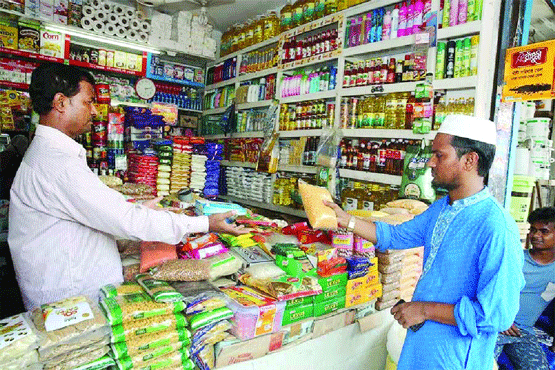Middle class struggling for survival due to price hike
Mahfuz Emran: Mostak Ahmed works as an accountant in a private company in Motijheel of the capital. Salary total 18 thousand taka per month. He lives with a family of four in Mirpur’s Kazipara. Tk 8 thousand per month for house rent. With the rest of the money, he spent the family expenses, the education of his sons and daughters, and traveled to the office. But the rising price of fuel has worried the middle-class family’s son Mostak.
During an interview on August 7, Mostak Ahmed told that the government has increased the price of fuel by 40 to 50 percent. As a result, public transport fares have increased. Apart from this, the prices of all kinds of daily products including food will also increase. But according to that, the income of employees or other professions has not increased. In such a situation it will be impossible for many to survive in Dhaka.
Mostak Ahmed said that a large part of the salary goes towards house rent. It is difficult to run the family with the remaining money. I can’t pay for my children’s education. It is not possible to buy food or clothes of your choice. Before the end of the month, you have to continue to borrow and pay. Can you survive like this?
The government has increased the price of all types of fuel from midnight on Friday (August 5). Out of this, diesel has increased by Tk 34, kerosene by Tk 34, octane by Tk 46 and petrol by Tk 44. After the price increase, a customer has to buy diesel at Tk 114 per liter. Apart from this, kerosene has to be bought at Tk 114, octane at Tk 135 and petrol at Tk 130 per liter. Meanwhile, the Bangladesh Road Transport Authority (BRTA) has increased the fares of public transport from today (Sunday) due to the increase in fuel prices.
Along with this, the cost of living has also increased several times. In this situation, people with low income are desperate to meet the cost of living.
Imdad Hasan, who has just completed his post-graduation, works in a super shop in Gulshan. During the conversation on Sunday (August 7) morning, he said, I used to have three tuitions when I was a student. At that time the monthly income was Tk 8-9 thousand. I used to live with a part of this money. I used to send the rest of the money to Tangail home to support my parents.
Now I get a salary of Tk 14 thousand. But now with the increase in the price of goods, mess rent, food expenses, pocket expenses, there is nothing at the end of the month. Can’t even send money home properly.
Sekandar Ali was returning home after buying a gourd for Tk 70, potal and bitter gourd at Tk 60 per kg, potato at Tk 30 per kg from Amtali kitchen market in Mohakhali. He said that he bought vegetables from this market three days ago at a lower price. Now the price of oil increases, the shopkeepers are selling each vegetable by Tk 5 to Tk 10.
He said that increasing the price of oil will have a negative impact not only on the raw market, but on all aspects of life. Lower- and middle-class families have to go days without food. If this continues, future generations will suffer from malnutrition.
Sohail Rana was selling vegetables in a van on Badda Link Road. During the conversation, he said that they bought vegetables from the wholesale market. Wholesalers have increased the prices of all vegetables. For this reason, they are forced to sell vegetables by Tk 5 to Tk 10 per kg.
He said, even if I sell vegetables at a higher price, I have to buy rice, pulses, oil, salt, fish or meat at a higher price. All the people of the country are stuck in such a cycle.
Economist and former advisor to the caretaker governmentAB Mirza Azizul Islam has expressed the fear that people’s suffering will increase due to the increase in oil prices. He said, this unusual increase in the price of fuel will hit the transport sector first. And everything is related to the transport sector. Product production cost will increase several times.
As a result, the price of the product will also increase. Common people’s suffering will increase. Due to inflation common people are not able to go to the market. There is no commodity whose price has not increased. Rising fuel prices will make these prices even more unaffordable. The middle class will be disoriented. If the purchasing power decreases, people can no longer live well.
Rare Israeli airstrike in Beirut kills Hezbollah commander and more than a dozen others
International Desk: Israel launched a rare airstrike that killed a senior Hezbollah milita…








